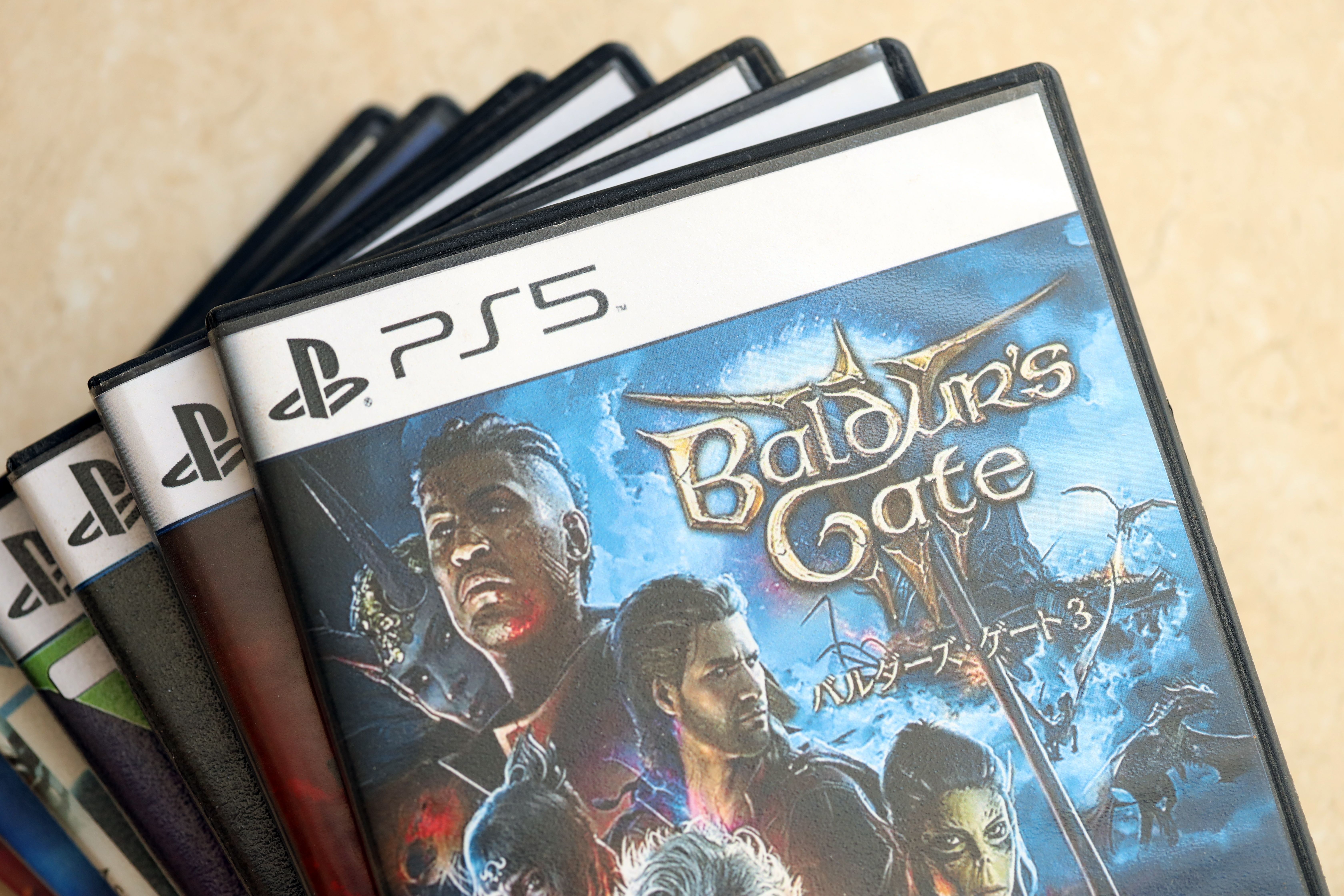Summary
- Many games are digital-only, which means digital is your only choice if you don’t want to miss out.
- Digital games are often more affordable and accessible than physical copies, with digital storefronts offering frequent sales and tempting bundles.
- Despite the advantages of digital games, physical copies provide a superior sense of ownership and can be resold or shared.
Digital stores are one of modern gaming’s greatest conveniences, but I’ve only recently started to buy digital games after actively avoiding them for years. Here’s why I finally changed my mind.
Countless Games Are Digital-Only
There was a time when I was only interested in playing the latest triple-A releases, which meant it was always easy to find physical copies of the games I wanted. But by choosing to ignore digital games, I was missing out on an expansive catalog of must-play titles from both indie developers and major studios.
Today, digital stores have even more to offer that you can’t find anywhere else. This is especially true for PC gaming, which has entirely replaced physical games with digital purchases and download codes. That isn’t a problem, as digital games are more accessible than ever before thanks to the increasing support of digital releases and console storefronts, along with the enduring popularity of PC marketplaces like Steam and the Epic Games Store. It works well on the PC since the platform is open.
While I still buy physical copies of most of my games, many of my recent favorites are digital exclusives. Some examples include Legal Dungeon (a unique detective-mystery game focused on searching through case files to interrogate suspects and solve various crimes) and The Witness (a cryptic open-world game with a stunning aesthetic and hundreds of uniquely challenging puzzles).
Since these games never received physical releases, either due to a lack of budget or their niche appeal, I didn’t mind paying for the digital copies.
Many games that initially launch as digital exclusives typically release physical versions down the line, usually in limited quantities. Depending on how long it takes for these physical versions to be released, they may also come bundled with downloadable content (DLC), as was the case for Alan Wake 2 and Outer Wilds.
If a digital-only game becomes popular enough, it will likely receive a physical release, which is why I prefer to wait for these versions rather than buying digital games at launch. Of course, I’ll make an exception for games like The Witness that have been out for years without any signs of a potential physical release, or games like Legal Dungeon that seem too niche to get a future re-release.
Digital Stores Have Offers You Shouldn’t Refuse
Unlike physical games, digital games don’t run out of stock or experience drastic price hikes. Not only are digital games more accessible than physical copies, but they’re often the most affordable option for buying games. I don’t mind paying slightly more for a physical copy, but there are plenty of cases when the price difference between physical and digital versions is too large to ignore.
Physical games that are out-of-print or imported from other territories are often only sold by third-party retailers at obscenely high prices, depending on the game. Meanwhile, digital copies won’t rise above their original retail value and will frequently go on sale. It helps that most digital stores are constantly running sales events with discounts for hundreds of games.
Even for games that have reasonably priced physical copies, you can get a much better deal with the digital versions. Many games receive digital-only bundles that include all DLC. Normally, these bundles are fairly expensive, but they can drop to the price of a standard physical copy—or less—during sales.
I’ve seen plenty of “complete editions” on Sony, Microsoft, and Nintendo storefronts that normally cost over $100 drop to around $20 or $30, whereas physical versions of similar bundles rarely go on sale. Just be aware that some “new” releases on platforms like the Switch can be deceiving even when cheap.
I Still Prefer Buying Physical Games
Even with all the benefits of buying digital games, they still haven’t replaced physical discs and cartridges as my preferred format for games. Digital games may be more convenient, but there are a few reasons why I still buy physical copies of most of my games.
In most digital stores, buying a game doesn’t mean you have full ownership over your copy. Instead, you’re paying for a license that permits you to play the game on your own device. This may sound functionally identical to proper ownership, but the difference is that a license can be revoked at any time. This usually only applies to users who violate a digital storefront’s terms of service, but there have been rare cases in which a publisher forcibly removes all digital copies of a game from users’ digital libraries.
In 2024, digital copies of Sony’s failed live service game Concord and Ubisoft racer The Crew were revoked from players after both games shut down their online servers. Although these games could only be played online and were consequentially unplayable after their shutdowns, their removal meant that players couldn’t even boot up the games they had purchased.
Your digital games are also tied to the store account you use to purchase them. Losing access to this account would mean losing your entire digital library. Some PC storefronts like GOG and itch.io allow you to transfer games between devices or access your digital library without signing in to an account, but the majority of digital games on other stores use DRM and other restrictive practices to limit how you can use your purchased games.
Physical discs and cartridges provide some form of guaranteed ownership over your games. Physical games can always be installed and played on your console, regardless of whether you have an online connection or access to your original account. Used physical games can also be resold or shared with others, whereas digital games are permanently linked to your library. Besides that, I won’t deny that I simply enjoy displaying my game collection on a shelf, even if it takes up a lot of space.
You can argue that physical copies aren’t as important as they used to be due to the prevalence of post-launch updates and DLC in modern games—but I prefer to have some form of ownership over my games rather than nothing at all. I also don’t mind spending a few bucks on a digital game that isn’t available anywhere else or would normally be a full-priced purchase for the physical release.
Digital games won’t be replacing my physical collection anytime soon, but I’m glad that I’ve started putting more effort into building a digital library.
If you’re just as hesitant as I was towards buying digital games, try determining what games you want to own physically and which ones you wouldn’t mind having as a digital download. By establishing this distinction for yourself, you can start making digital purchases that you won’t regret.







